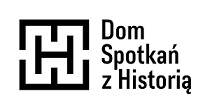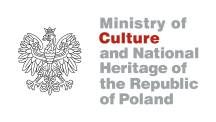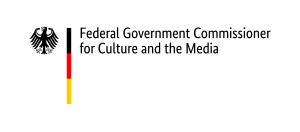9:00
Parallel session. Recalling and Constructing Key Historical Events
Katja Doose:
“Here, Everything Tumbled Down Much Earlier”: Colliding Memories of the Soviet Collapse and the Armenian Earthquake
Andrea Brait:
About the Interpretation of 1989 as an Epoch Year in Austria
Valentina Nedelcheva:
The “Sudden Death” Syndrome: Reminiscence of the Bulgarian 10th of November 1989
Constantin Schmidt:
The Transnational Remembrance of the Paneuropean Picknick
Chair: Burkhard Olschowsky
Commentators: Dobrochna Kałwa and Jan Kubik
9:00
Parallel session. Master Narratives in the Making
Ben Gook:
Nachträglichkeit: Belatedness and the Fall of the Berlin Wall
Barbara Gawęda:
Anti‐Feminism of Transformation: a Narrative about Sidelining Women’s Issues
Jens Boysen:
Forcing the Reds out of the National Remembrance
Sylvia Balgarinov:
Whose History Should we Teach to our Children?
Alina Thiemann:
The Romanian Revolution: from Heroic Moment to Tragedy and then to Farce
Chair: Ferenc Laczó
Commentators: Marcin Napiórkowski and Jeffrey K. Olick
9:00
Parallel session. The Agents and Impact of Economic Change
Jannis Panagiotidis:
Horizons of Transition: Economic Experts and the Making of the “Long Year 1989”
Agnès Arp:
A Second Nationalization of the Private Entrepreneurs from the GDR, 1989-90?
Kamil Lipiński:
Sailing to the “Islands of Normal”: 1989-91 in the Eyes of Polish Business Elite
Karolina Mikołajewska:
Remembering Privatization in the Polish Food Industry
Chair: Joanna Wawrzyniak
Commentators: Maciej Gdula and Joachim von Puttkamer
9:00
Parallel session. Religion, Ethnicity and Memory
Denise Thorpe:
Sifting and Shifting Memory: Lithuanian Vėlinės Practices as the Performance and Construction of Memory
Vera Klyueva, Roman Poplavsky:
A Time to Sow: Last Soviet Years in the Memories of Contemporary Believers
Dagmara Dudek:
Church and the Political Change of 1989. The Making of Memory in Germany
Toria Malkhaz:
Georgian-Abkhazian Conflict in the Recollections of Internally Displaced Historians
Mimoza Telaku:
Collective Narrative of the Interethnic Conflict in Kosovo
László Szabolcs:
The Hopeful December and the Black March: Documentary Films as Collective Memory Projects in Romania
Chair: Małgorzata Pakier
Commentators: Lutz Niethammer and James Wertsch
9:00
Parallel session. Experiences, Discourses and Biographies
Adam Mielczarek:
Experience and Memory of Polish Solidarity Movement
Kirsti Jõesalu, Raili Nugin:
Mediated Experiences of “ Freedom” in Museums and Biographies
Joakim Glaser:
Football Clubs and Identity Change in Eastern Germany
Cătălin Parfene:
Football, Writing and Politics in the Memory of an Ethnic Hungarian in Romania
Chair: Piotr Filipkowski
Commentators: Olena Ivanova and Miroslav Vaněk
9:00
Parallel session. Group and Generational Memories
Magdalena Wnuk:
The 1989 Dilemma: “To Stay Abroad or to Return to Poland?”
Elena Bogomyagkova:
Russian Students Remembering 1993
Kaja Kaźmierska:
Experience of the Process of Transformation in Poland in Generational Perspective
Jolanta Steciuk:
Voices of the 1970–75 Generation in Poland
Grażyna Kubica-Heller, Agnieszka Król:
Trajectories of Polish Transformation: Biographical Narratives of 1989’ Generation
Manuela B. Rajevic:
Politics Of Memory in Latin American Post Dictatorship Societies: The Re-Emergence of Resistance Discourses in New Generations
Chair: Franka Maubach
Commentators: Alexander von Plato and Ljubica Spasovska
13:00
1989-1991 in Comparative and Transnational Perspectives
Burkhard Olschowsky:
1989 as a Lieu de Mémoire in Poland and Germany
Lars Breuer, Anna Delius:
Ordinary Europeans’ View on 1989
Aline Sierp:
Bridging the Gap: Framing Memory Debate in the EU
Chair: Piotr Filipkowski
Commentator: Michael Bernhard
15:30
Final discussion
Chair: Joanna Wawrzyniak
Workshops results summaries
General comments by Jeffrey K. Olick
Free discussion










